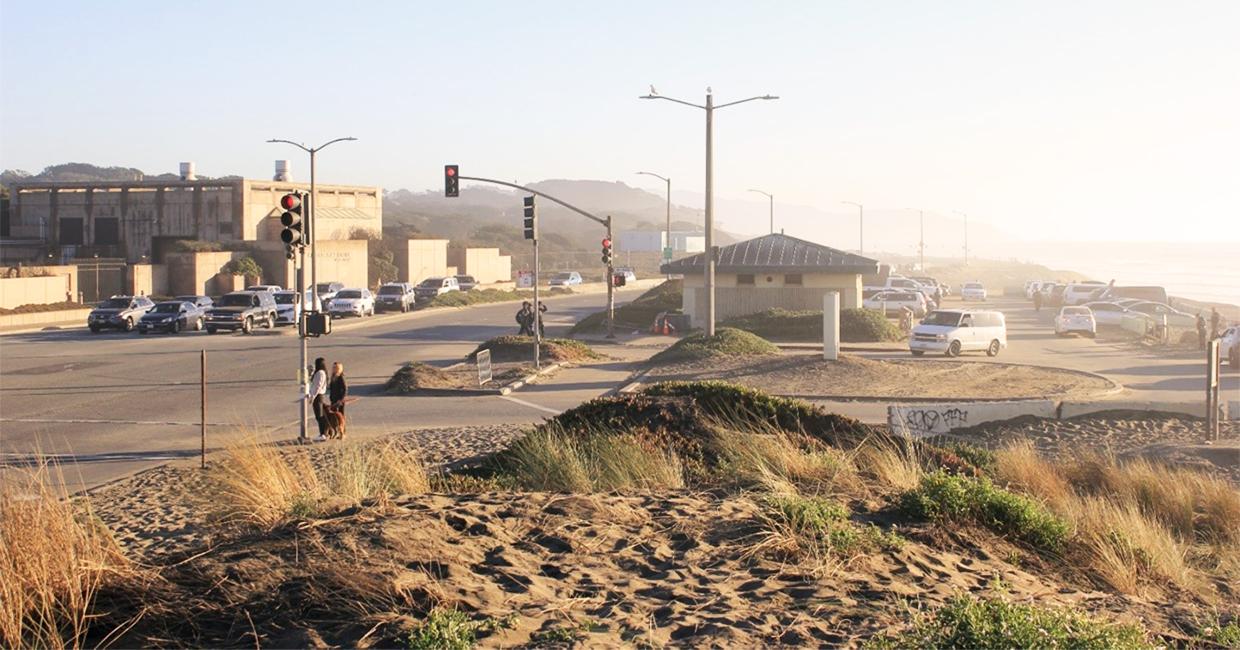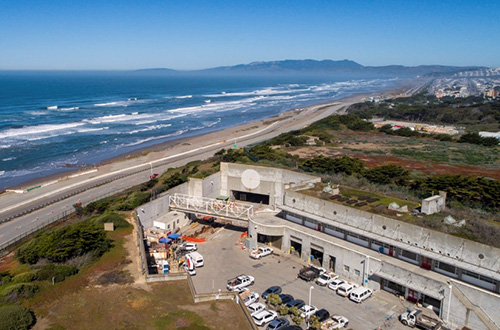
For those who surf, bike, walk, drive and live along the west side of San Francisco, Ocean Beach is a community treasure. But it is also a challenging environment, impacted by storm-driven waves and suffering from climate-induced erosion of the coastal bluffs. As climate change causes sea levels to rise, erosion is expected to worsen, narrowing the beach, and further threatening coastal infrastructure like our roads and critical underground sewers system facilities. At South Ocean Beach, shoreline erosion is threatening the most seaward component of the combined system — the Lake Merced Tunnel, a fourteen-foot diameter pipe located under the Great Highway.
We Have A Plan to Adapt
In 2012, working in cooperation with federal, state, and local agencies; community stakeholders; and the public, SPUR (formally known as the San Francisco Bay Area Planning and Urban Research Association) published the Ocean Beach Master Plan, a climate adaptation plan to address the wide range of complex challenges occurring at Ocean Beach. This plan provides a comprehensive vision and suggestions to address sea level rise, manage a changing coastline, protect critical sewer infrastructure, and significantly upgrade public access to the beach.
The Ocean Beach Climate Change Adaptation Project was developed out of the recommendations in the Ocean Beach Master Plan. The Master Plan presents six key moves that are organized by geographical reaches and designed to be implemented incrementally over a period of decades. This project focuses on South Ocean Beach and includes two of the six key moves: the removal of the Great Highway between Sloat and Skyline Boulevards, and in its place construct a multipurpose coastal protection, restoration, and access system.
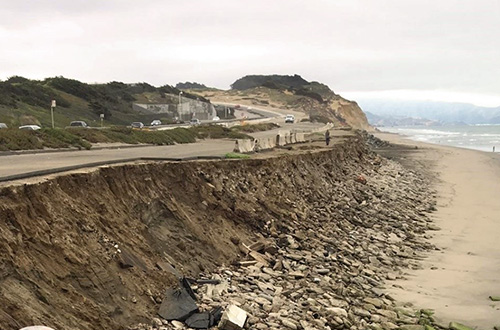
Short and Long-Term Improvements
As the impacts of climate change become more real every year, this project is utilizing and developing both short and long-term improvements to respond to coastal erosion threatening the vital wastewater infrastructure located under the Great Highway along Ocean Beach. Short-term improvements protect wastewater infrastructure and improve access while the long-term improvements are being developed.
The short-term improvements rely on sand replenishment activities to protect the area and are informed by annual monitoring efforts. Since 2015, over 200,000 cubic yards of sand have been transported from the northern portion of Ocean Beach, where sand is plentiful, to south Ocean Beach (south of Sloat Boulevard) where shoreline erosion is threatening wastewater infrastructure. In early 2021, we also partnered with the Army Corps of Engineers to place an additional 255,000 cubic yards of sand that was dredged from the San Francisco Main Shipping Chanel onto south Ocean Beach to further protect the area.
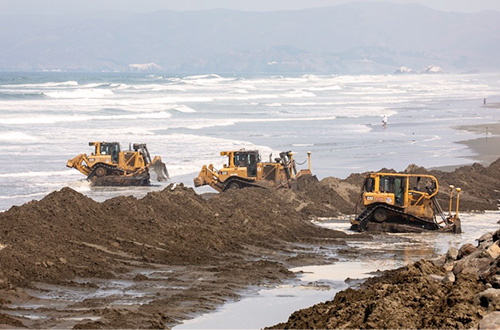
The long-term improvements are currently in 95% Design and will involve the implementation of coastal management strategies that include:
- Managed retreat (i.e., recontouring the bluffs and removing the Great Highway between Sloat and Skyline boulevards).
- Removal of rubble and revetment rock from the beach and bluffs.
- Continued beach nourishment activities.
- Installation of a low-profile (buried) wall to protect the Lake Merced Tunnel and associated assets.
- Installation of a coastal access trail, public restroom, and coastal parking.
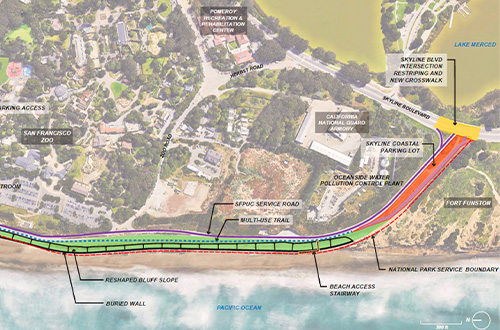
“These long-term improvements will not only aim to protect the vital wastewater infrastructure at risk” states Anna M. Roche, Project Manager for the SFPUC Climate Change Adaptation Project, “but also offers an opportunity for the City to drastically improve public use and accessibility along the Great Highway south of Sloat Boulevard.” The proposed improvements include the construction of a multi-use trail, beach access stairway, coastal access parking, and public restroom. The Long-term Improvements Phase is expected to begin construction in late 2023 and last for 4 years.
Join us to Learn More!
The SFPUC will be holding a multi-agency, virtual community webinar on April 20th at 6:00 pm to share status updates on the City’s Ocean Beach Climate Change Adaptation Project, with a focus on the open space components (e.g., multi-use trail, public bathroom, public parking lot, access to the beach, etc.). Staff from the SFMTA will also provide an overview of proposed improvements to the transportation system as well as updates on other local projects. Join us for the conversation by registering for this event at bit.ly/OBProjectUpdates.


